This post contains affiliate links from which I may receive a small commission, at no extra cost to you. In no way does this affect my opinion or the information I provide on the product. Please read my disclaimer for more info.
Written by Lucie Villeneuve, nutritionist, M.Sc.
Nowadays, it seems like just eating healthy and balanced meals isn’t enough.
Filling up your cart with fresh fruit and vegetables? Not so fast— they better be organic!
The organic food vs non-organic food debate has a lot of people thinking that organic food is healthier, safer, and better in general— but is that really true?
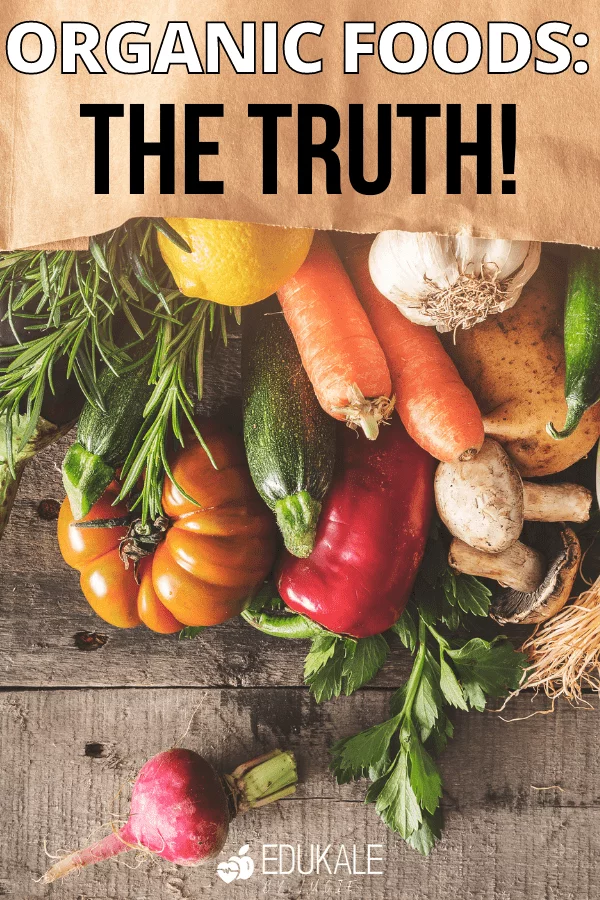
What is organic food?
Organic foods have different regulations depending on which country you are from. In the US [1], produce can be called organic if it has been grown on soil without any prohibited substances applied for three years prior to harvest. These substances include synthetic fertilizers and pesticides.
Organic processed foods must contain organic ingredients while artificial preservatives, colors, or flavors are prohibited.
When it comes to meat, the animals have to be fed organic food and not given antibiotics or hormones. Their living conditions also have to accommodate their natural behaviors.
Unless the food packaging states that the food is 100% organic, the label “made with organic ingredients” only requires them to contain a minimum of 70% organic ingredients. Organic foods are also non GMOs.
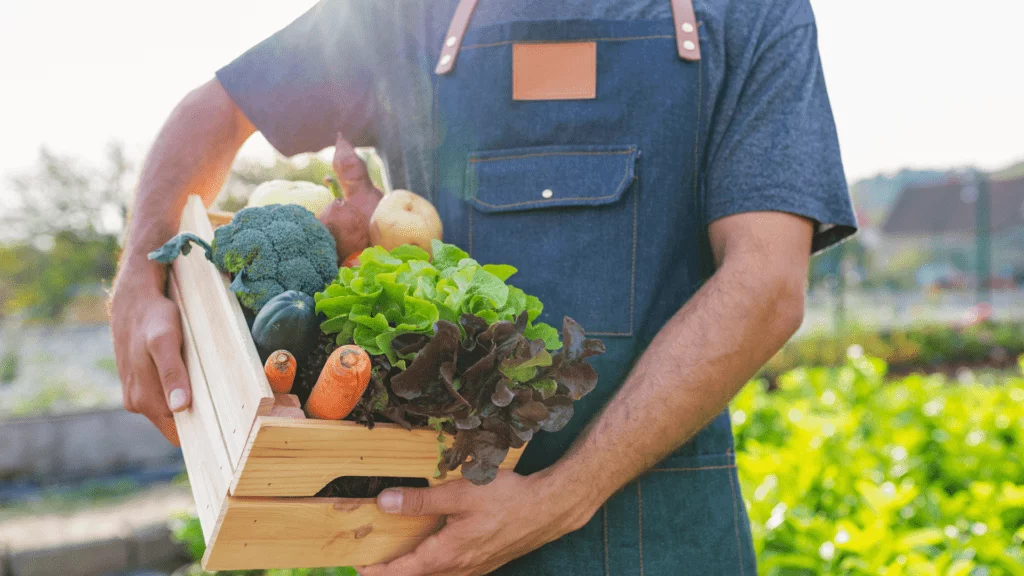
Is organic food more nutritious than conventionally grown food?
A big reason why people choose organic foods is because they believe them to be healthier and more nutritious than conventionally grown food. But is this actually the case?
One study [2] looked at almost 70 thousand participants and found that a higher frequency of organic food consumption was associated with a reduced risk of overall cancers. However, it’s important to note that people who consume organic foods are generally more health-conscious and more likely to make healthier life choices. Therefore, it’s difficult to know whether the reduced cancer risk is actually because of the organic foods, or just because the participants tend to live an overall healthier lifestyle.
Another study [3] looked at around 623000 women and found that the consumption of organic food was not associated with a decrease in the incidence of cancer.
Nutrition-wise, we can’t say that organic food is better or more nutritious than conventional food. A review of studies [4] showed that organic produce does not seem to have significantly more vitamins and minerals, but they appear to have more antioxidants. There wasn’t any strong evidence suggesting that organic foods were significantly more nutritious than conventionally grown food.
Another study [5] also concluded that there were no meaningful nutritional benefits from eating organic foods. There were also no quality human studies that demonstrated direct health benefits or disease protection from having an organic diet. There were no detrimental or disease-promoting effects associated with an organic diet either, however.
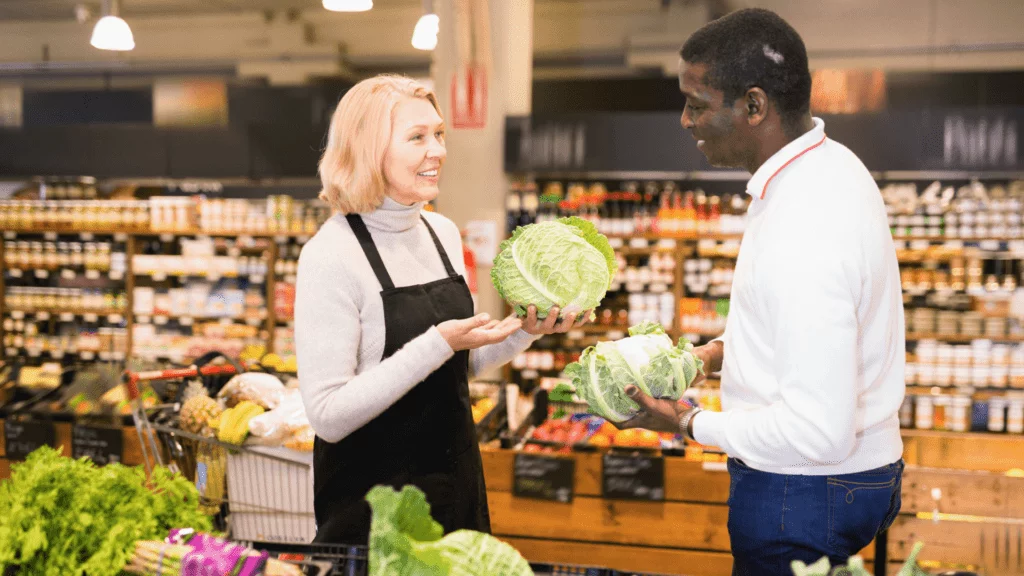
Finally, organic foods seem to foster a health halo effect, meaning that people perceive them to be healthier than they actually are, with little evidence backing that claim. A study [6] showed that people were more likely to pay more for organic foods, and estimated them to be healthier and lower in calories when it wasn’t the case. This shows the impact of marketing on the perceived benefits of organic foods.
Is organic food safer than conventionally grown food?
Another reason why people opt for organic foods is because they believe them to be generally safer to eat than conventionally grown foods. Since the food is not GMO and grown without pesticides and fertilizers, it has a safer reputation.
However, this doesn’t mean that organic food is necessarily free from pesticides. Pesticide residues can still be found in organically grown produce. This can happen through water or soil contamination by pesticides from neighboring farms, or through contact with non-organic produce after harvest.
There’s simply a maximum allowable residue limit that needs to be respected for each pesticide. However, the levels remain much lower than non-organic foods and do not pose a health risk [7].
This study [8] showed that the occurrence of pesticide residues was four times higher in conventional crops than in organic crops. They also contained higher concentrations of the toxic metal cadmium. This hasn’t been shown to pose a health risk, however.
It’s also interesting to note that a lot of people tend to overestimate the risk of pesticides. They may make an effort to reduce their exposure to pesticides, all while participating in other riskier behaviors, such as smoking or not wearing a seatbelt [9].
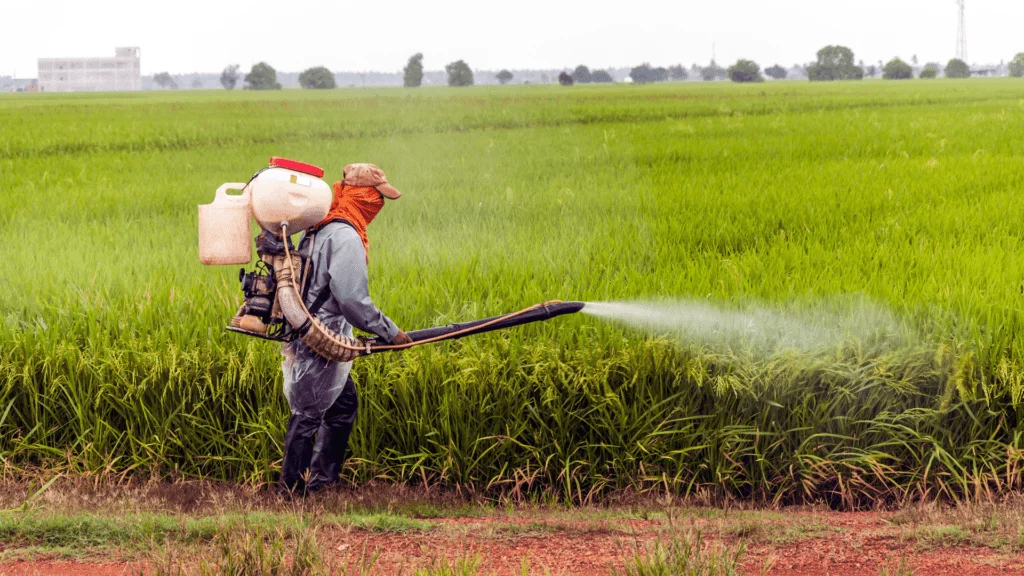
As for the GMO issue, the use of genetical engineering or genetically modified organisms (GMOs) is prohibited in organic products. GMO seeds can’t be planted, organic animals can’t eat GMO food, and processed organic foods can’t contain GMO ingredients. There may be a trace amount of GMOs in the organic foods you buy however, because of cross-contamination [10].
However, there is no direct human data suggesting that eating GMOs may cause harm [11]. No health indicators were identified regarding genetically modified crops, except for possible beneficial impacts of reduced mycotoxins and nutritional enhancement [12]. There is mounting scientific evidence that GMO foods are substantially equivalent to traditionally bred food sources [13].
That being said, I do think that GMOs should be properly labeled, and that consumers should be able to make their own informed decision on whether or not to purchase them.
In short, conventionally grown food does contain more pesticides and GMOs than organic food, but that doesn’t make it less safe to eat.
Why you don’t need to buy organic food.
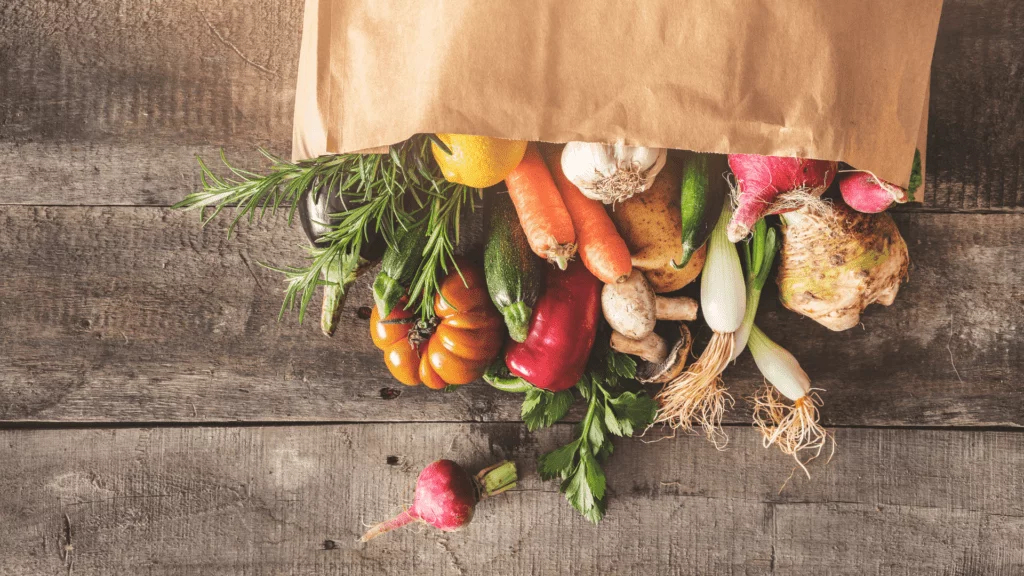
In terms of health or nutrition, organic foods have no downsides. However, the same can’t be said for their price. As I mentioned previously, people are prepared to pay more for organic foods, as they are seen as safer and healthier, when it isn’t actually the case.
You get so many benefits from eating conventionally grown fruit and veggies that outweigh any kind of minor risk by far [14].
The problem also resides in the fact that fear-based messaging around non-organic foods may have a negative impact on the consumption of fruits and vegetables among low income consumers [15].
People who don’t necessarily have the money for organic products may also feel like they are making poorer choices, or that they are negatively impacting their children’s health, when this is absolutely not the case.
The way I see it, it’s much better to eat plenty of fruit, veggies, and whole grains— even if they aren’t organic— rather than limiting yourself to more expensive organic foods and eating much less. Check out my article on healthy eating for beginners for some help on how to start healthy eating!
For certain foods, you shouldn’t even bother buying organic because the pesticide residues are extremely low. This is known as the “clean fifteen list” and contains avocados, corn, pineapple, onions, papaya, sweet peas, eggplant, asparagus, broccoli, cabbage, kiwi, cauliflower, mushrooms, honeydew melon, and cantaloupe. If you prefer to buy organic, buying foods from the “dirty dozen” list is the most profitable choice.
Whether you buy conventional or organic produce, make sure to wash them thoroughly through running water and you will be just fine.
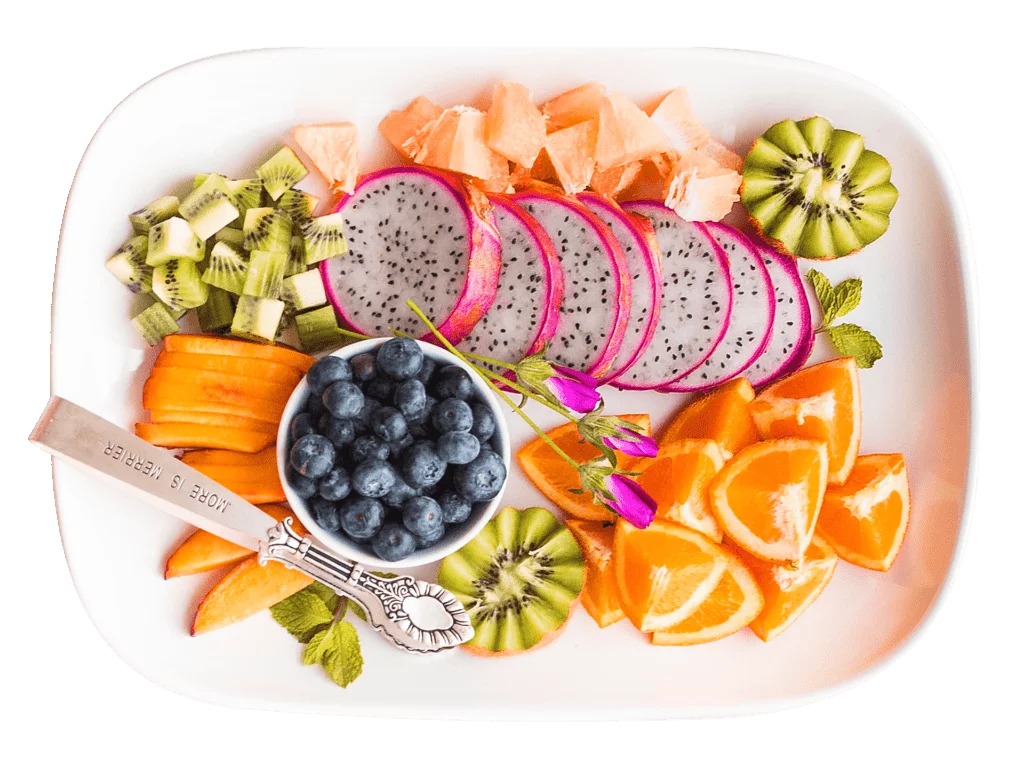
Organic food vs non-organic food in conclusion.
Organic foods are grown without pesticides or GMOs, but they are also more expensive than conventionally grown produce. Organic foods aren’t more nutritious or significantly safer, so it’s up to you to make that choice for yourself. Whether you prefer organic or conventional foods, you can’t go wrong by adding more fruit and veggies to your plate!
If you’re interested in nutrition, its impact on our health, and the science behind it, you should definitely read How Not to Die. In this book, Doctor Michael Greger, founder of Nutrition Facts, examines the top causes of death in America and explains how your diet can prevent— and in some cases even reverse— them. His advice is all backed by science and he writes in a very clear and entertaining way. This book isn’t a list of what you already know. It will teach you the keys to living a long healthy life, in a simple and practical way, and without spending fortunes on supplements and pills!
PLUS if you want to take it a step further, you can check out the How Not to Die Cookbook to implement the advice easily!


